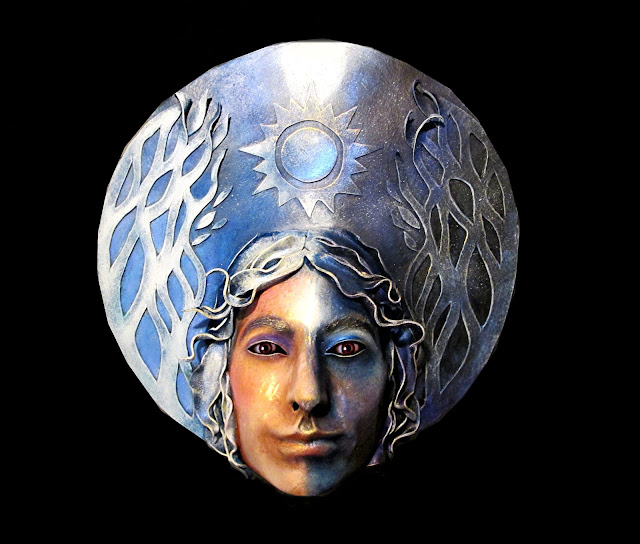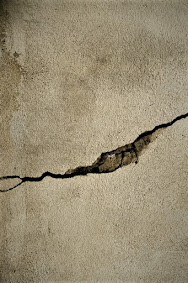 John Barleycorn Must Die is a traditional English song - records of its origins go back as far as the 1300s, and it is probably much older than that. Over time, many variations have arisen, and the Scottish poet Robert Burns wrote his own famous version of the story of John Barleycorn. In the 70's, John Renbourne, Traffic, and Steel Eye Span popularized the song, along with many other folk artists of the time. John Barleycorn is a very ancient, prime myth indeed - the Great King who is sacrificed, dies and is reborn in the spring as the wheel of the year's agricultural cycle turns. In many pre-Christian cultures, this motif is found as the Sumarian God Dumuzi, the Shepherd husband of the Goddess Inanna who goes into the underworld for part of the year, and returns to her in the Spring. The same idea of the dying and reborn King is found with the Egyptian Osiris, who is reborn in his son, the Sun God Horus.
John Barleycorn Must Die is a traditional English song - records of its origins go back as far as the 1300s, and it is probably much older than that. Over time, many variations have arisen, and the Scottish poet Robert Burns wrote his own famous version of the story of John Barleycorn. In the 70's, John Renbourne, Traffic, and Steel Eye Span popularized the song, along with many other folk artists of the time. John Barleycorn is a very ancient, prime myth indeed - the Great King who is sacrificed, dies and is reborn in the spring as the wheel of the year's agricultural cycle turns. In many pre-Christian cultures, this motif is found as the Sumarian God Dumuzi, the Shepherd husband of the Goddess Inanna who goes into the underworld for part of the year, and returns to her in the Spring. The same idea of the dying and reborn King is found with the Egyptian Osiris, who is reborn in his son, the Sun God Horus.Some of these rituals survive to this day in modified form, most famously the sacrifice of the wicker man. These rituals tell the story of the death and eventual rebirth of the god of the grain."*
It might be noted that John Barleycorn is, in particular, also a God of Ecstasy - because he provides celebration and ecstasy as the barley becomes the source of beer and the beloved malt whiskey of the Highlands. He shared a style not unlike the more Mediteranean temperment of Bacchus, the Roman God of wine. The malting and fermentation of the grains that form his body is also a part of his "life cycle" and divinity. Perhaps one of the most famous "ecstatic" manifestations of the Wicker Man, his rituals of sacrifice, rebirth, and celebration is Burning Man, the "harvest" festival that happens in Nevada every fall.
It's interesting that in Robert Burn's poem, there are "three kings", similar to the kings from the east in the Nativity story. Early Christians who came to the British Isles (and elsewhere) often absorbed native pagan mythologies and traditional rituals into Christian theology, and the evolution of the Story of Christ is full of such imagery in order to help the natives accept Christianity. Certainly John Barleycorn shares with the Christ Story the ancient theme of the death and rebirth of the sacrificed agricultural King.
I am a great admirer of the wisdom traditions of Gnostic and esoteric Christianity, but I also believe it is necessary to separate the spiritual teachings of Christianity from the mingling (and literalization) of earlier mythologies in the development of the Church.
John Barleycorn
by Robert BurnsThere was three kings into the east,
Three kings both great and high,
And they hae sworn a solemn oath
John Barleycorn should die.
They took a plough and plough'd him down,
Put clods upon his head,
And they hae sworn a solemn oath
John Barleycorn was dead.
But the cheerful Spring came kindly on,
And show'rs began to fall;
John Barleycorn got up again,
And sore surpris'd them all.
The sultry suns of Summer came,
And he grew thick and strong,
His head weel arm'd wi' pointed spears,
That no one should him wrong.
The sober Autumn enter'd mild,
When he grew wan and pale;
His bending joints and drooping head
Show'd he began to fail.
His coulour sicken'd more and more,
He faded into age;
And then his enemies began
To show their deadly rage.
They've taen a weapon, long and sharp,
And cut him by the knee;
Then ty'd him fast upon a cart,
Like a rogue for forgerie.
They laid him down upon his back,
And cudgell'd him full sore;
They hung him up before the storm,
And turn'd him o'er and o'er.
They filled up a darksome pit
With water to the brim,
They heaved in John Barleycorn,
There let him sink or swim.
They laid him out upon the floor,
To work him farther woe,
And still, as signs of life appear'd,
They toss'd him to and fro.
They wasted, o'er a scorching flame,
The marrow of his bones;
But a Miller us'd him worst of all,
For he crush'd him between two stones.
And they hae taen his very heart's blood,
And drank it round and round;
And still the more and more they drank,
Their joy did more abound.
John Barleycorn was a hero bold,
Of noble enterprise,
For if you do but taste his blood,
'Twill make your courage rise.
'Twill make a man forget his woe;
'Twill heighten all his joy:
'Twill make the widow's heart to sing,
Tho' the tear were in her eye.
Then let us toast John Barleycorn,
Each man a glass in hand;
And may his great posterity
Ne'er fail in old Scotland!
And last, and so appropriate for the Harvest Time of Mabon, Steve Winwood of Traffic's version of John Barleycorn Must Die. I love to hear this ancient song sung thus, it brings back to me something I don't see in contemporary music much any more, which is the use of music to tell stories, and through poetry, to continue the teachings of myth, which was traditionally the role of the Bard. https://youtu.be/t8878chOvfI
























